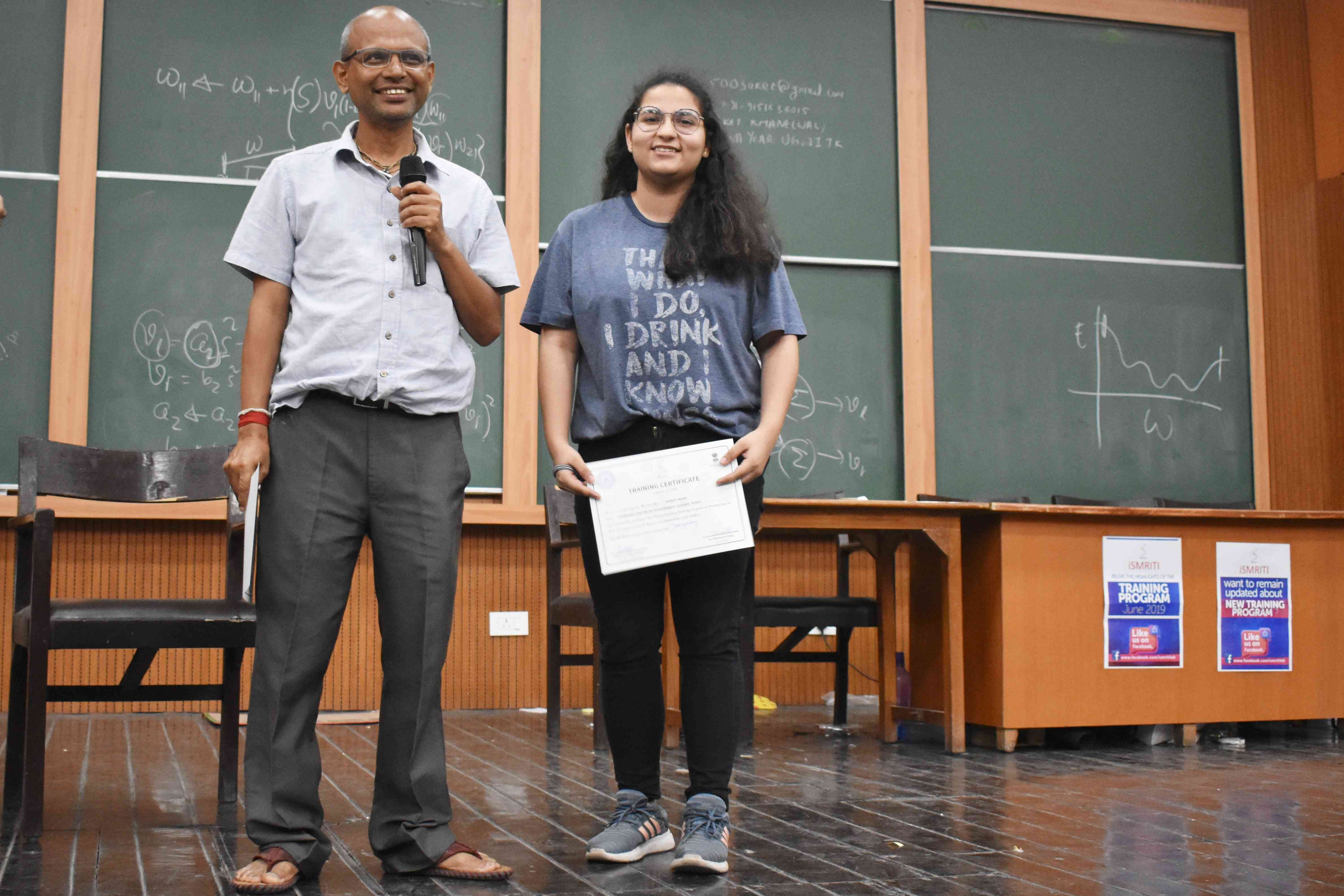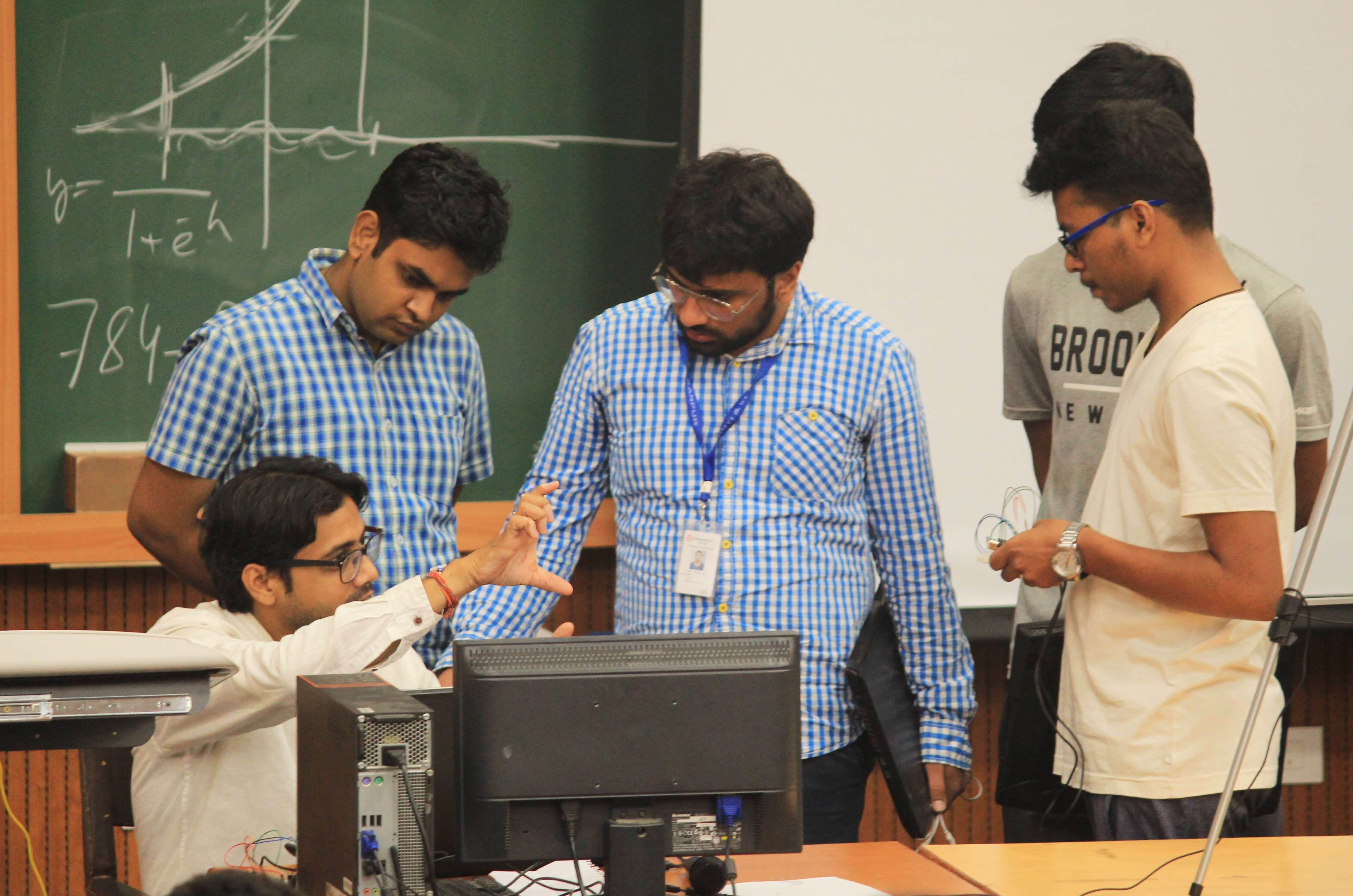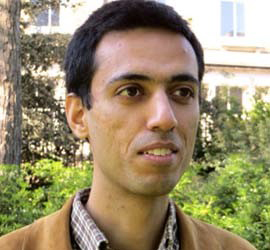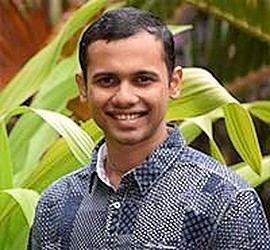Program Content
Introduction to AI and IoT
This module will introduce you to the wonderful world of Internet of Things.
- State of the Art in IoT
- Structure of the Internet
- Product development Cycle
- Applications and impact of IoT on society
In this module you will learn the fundamentals of C/C++ programming that is necessary for building IoT applications.
- Basics of the C programming language
- Operators, expressions, Conditional Statements
- Input and Output Functions
- Delay function and Interrupt Handling
Python has become the default language in which majority of Machine Learning and AI is done today. In this unit, you'll learn how to program in Python, best coding practices, and essential python libraries.
- Python Basics from Scratch
- Essential Python Libraries
- Best Coding Practices
Data that you will be dealing with in ML and Data Science is stored in various formats - Text files, JSON files, CSV files, Databases of various kinds etc. So as a Data Scientist, it is essential that you know how to deal with these different formats.
- Data Wrangling with Pandas
- Working with different file formats - txt, csv, json etc
- Working with data fetching apis
- Web Scraping for Data
Statistics is the mathematical foundation of Data Science. A thorough understanding of statistics is vital for exploring data and building predictive models.
- Master the basics of inferential statistics and parameter estimation
- Use hypothesis testing to determine if a phenomenon is statistically significant
- Learn how correlation and regression can help identify useful features
- Build A/B split tests
- Conduct exploratory data analysis
Machine Learning combines aspects of computer science and statistics to extract useful insights and predictions from data. In this unit, we'll cover the most important machine learning algorithms (supervised and unsupervised). You'll learn when these algorithms are useful, the assumptions they incorporate, the tradeoffs they involve and the various metrics you can use to evaluate how well your algorithm performs. Most importantly, you’ll learn to implement them at scale.
- Common algorithms like linear regression, logistic regression, and statistical modeling
- Advanced algorithms like Decision Tree, Random Forest, gradient boosting, and K-means clustering
- Model selection, evaluation, and interpretation concepts like regularization, the Curse of Dimensionality, and cross-validation
- Supervised and unsupervised learning
- Tools: scikit-learn, XGBoost
Deep learning is a set of advanced machine learning techniques that power many of today’s most cutting edge applications, including image recognition, machine translation, self-driving cars, speech recognition, and more. It is based on neural networks, which are loosely inspired by the structure of the human brain. In this unit, you’ll establish a thorough foundation in deep learning and build real-world applications.
- Overview of Neural Networks, Backpropagation and foundational techniques
- Principles of Deep Neural Networks
- Engineering Frameworks: Keras, TensorFlow, PyTorch
In this moudle, you will learn about various IoT boards available for devleopers and start building your first IoT applications.
- Architecture of IoT development Board
- Installation and running led blinking program on board
- ADC and communication port details on board
- Hardware and software interrupts
This module will introduce you to basic communication protocols in IoT.
- Basics of serial communications
- HTTP protocol
- MQTT protocol
- Defining server and clients
- Defining access point and station
- Web server
- Point to Point communication
- Intranet and internet
- Basic android app development
- Creating and installing app to android phone
- Controlling Wi-Fi devices using android app
- Monitoring status of Wi-Fi devices on android app
- Introduction to cloud services
- How to use cloud services for IoT applications
- Development of Mobile robot from scratch
- Controlling mobile robot using smart phone over Wi-Fi
- Obstacle avoidance algorithm
- Monitoring surrounding physical parameter using mobile phone
Applied Machine Learning and Data Science
Python has become the default language in which majority of Machine Learning and Data Science is done today. In this unit, you'll learn how to program in Python, best coding practices, and essential python libraries.
- Python Basics from Scratch
- Essential Python Libraries
- Best Coding Practices
Data that you will be dealing with in ML and Data Science is stored in various formats - Text files, JSON files, CSV files, Databases of various kinds etc. So as a Data Scientist, it is essential that you know how to deal with these different formats.
- Introduction to SQL
- Structured and Unstructured Databases
- Data Wrangling with Pandas
- Working with different file formats - txt, csv, json etc
- Working with data fetching apis
Data Science doesn't end with the math, the algorithms and the analysis. As a Data Scientist you'll need to communicate your findings and insights to many non-technical people. In this unit you'll learn how to use data visualization and how to mine insights using the right questions to build a narrative.
- Data Visualization using Matplotlib and Seaborn
- Storytelling Techniques with Data
Statistics is the mathematical foundation of Data Science. A thorough understanding of statistics is vital for exploring data and building predictive models.
- Master the basics of inferential statistics and parameter estimation
- Use hypothesis testing to determine if a phenomenon is statistically significant
- Learn how correlation and regression can help identify useful features
- Build A/B split tests
- Conduct exploratory data analysis
Machine Learning combines aspects of computer science and statistics to extract useful insights and predictions from data. In this unit, we'll cover the most important machine learning algorithms (supervised and unsupervised). You'll learn when these algorithms are useful, the assumptions they incorporate, the tradeoffs they involve and the various metrics you can use to evaluate how well your algorithm performs. Most importantly, you’ll learn to implement them at scale.
- Common algorithms like linear regression, logistic regression, and statistical modeling
- Advanced algorithms like Decision Tree, Random Forest, gradient boosting, and K-means clustering
- Model selection, evaluation, and interpretation concepts like regularization, the Curse of Dimensionality, and cross-validation
- Supervised and unsupervised learning
- Tools: scikit-learn, XGBoost
Deep learning is a set of advanced machine learning techniques that power many of today’s most cutting edge applications, including image recognition, machine translation, self-driving cars, speech recognition, and more. It is based on neural networks, which are loosely inspired by the structure of the human brain. In this unit, you’ll establish a thorough foundation in deep learning and build real-world applications.
- Overview of Neural Networks, Backpropagation and foundational techniques
- Principles of Deep Neural Networks
- Common Deep Neural Network configurations e.g. RNNs, CNNs, MLPs, LSTMs
- Generative Deep Learning and GANs
- Engineering Frameworks: Keras, TensorFlow, PyTorch
Image processing has taken off in the last decade due to the proliferation of images on social media sites such as Facebook and Instagram. Recognizing objects such as cars, and individuals from images is a hard problem, but AI techniques have made huge strides. In this case study, we’ll go through image processing techniques and solve a real image processing problem. Computer vision and image processing concepts will be spread across two units — one that dives into the theory behind these concepts and another that works through a hands-on tutorial that will help you put into practice everything you’ve learned.
- Foundations of computer vision and image processing
- Object detection and image segmentation with algorithms
- Applications and trends in computer vision
NLP uses techniques from computer science, linguistics, and machine learning to process human language, typically in the form of unstructured text. In this unit, you’ll learn the basics of text data, how to clean and process it, and how to extract insights from text sources and conversations. We’ll walk you through a detailed case study to solve a real NLP problem using Deep Learning and other techniques.
- How to work with text and natural language data
- NLP in Python, using common libraries such as NLTK and spaCy
- Representing language: BOW, TF-IDF, word embedding models (word2vec, GloVe, FastText, and StarSpace)
- Deep Learning techniques for NLP
- Chatbots and other modern NLP applications
In this unit we'll cover applications of ML to Recommendation Systems, Time Series Data, Social Network analysis etc to equip you with the tools necessary to tackle problems in any domain.
This is the unit where the rubber meets the road. You’ll take everything you have learned so far: the tools, techniques, and the libraries and deploy a large-scale AI system.
- Common tools and techniques to build large-scale AI applications
- Tools for building quality APIs
- Productionizing models with CI and CD
- Tools like PySpark, PyTorch, and Spark for model production
*Note: Program contents are tentative and are subject to change when necessary











